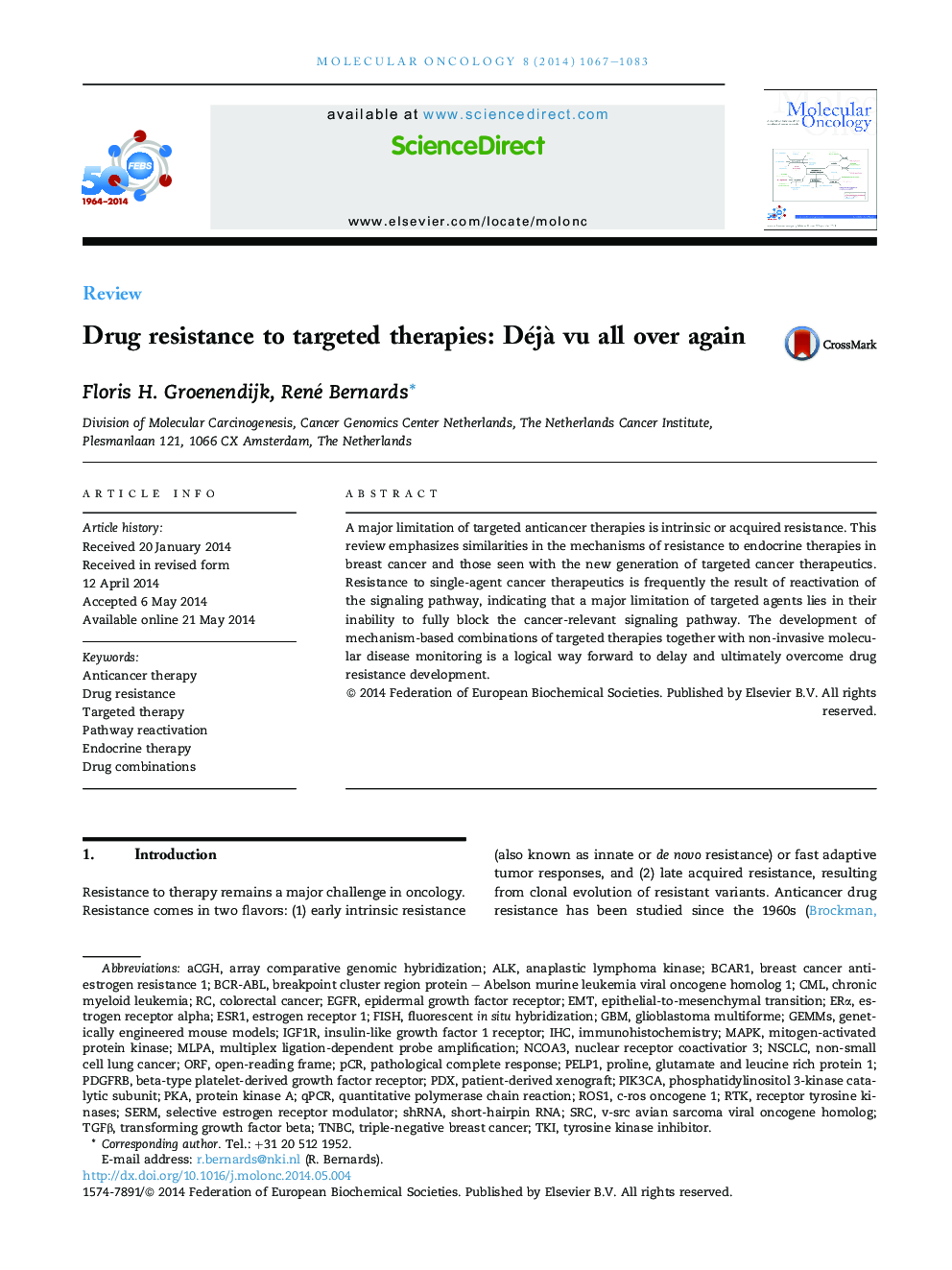| Article ID | Journal | Published Year | Pages | File Type |
|---|---|---|---|---|
| 2145567 | Molecular Oncology | 2014 | 17 Pages |
•Resistance to cancer (targeted) therapies remains a major problem in the clinic.•We highlight similarities between resistance mechanisms to different targeted therapies.•Resistance to targeted monotherapy is frequently driven by pathway reactivation.•Rational combinations of targeted therapies need to be developed.•Non-invasive molecular disease monitoring shows promise to guide these combinations.
A major limitation of targeted anticancer therapies is intrinsic or acquired resistance. This review emphasizes similarities in the mechanisms of resistance to endocrine therapies in breast cancer and those seen with the new generation of targeted cancer therapeutics. Resistance to single-agent cancer therapeutics is frequently the result of reactivation of the signaling pathway, indicating that a major limitation of targeted agents lies in their inability to fully block the cancer-relevant signaling pathway. The development of mechanism-based combinations of targeted therapies together with non-invasive molecular disease monitoring is a logical way forward to delay and ultimately overcome drug resistance development.
